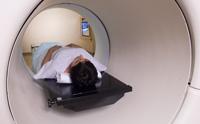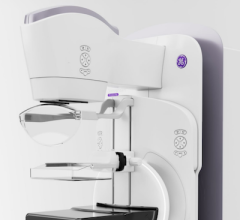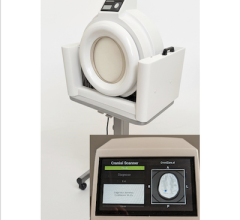
March 24, 2010 - A moderately aggressive hypofractionation schedule can be used along with chemotherapy, with low side effects, according to the first published results from a study on the concurrent use of hypofractionated TomoTherapy radiation treatments and chemotherapy for unresectable locally-advanced non-small cell lung cancer (NSCLC).
The Department of Radiation Oncology at the Universitaire Ziekenhuis (UZ) Brussel in Brussels, Belgium, conducted the trial, results of which were published in the journal Cancer (Volume 116, Issue 1, Pages 241-250, Jan 2010).
Previous studies have shown an increase in the rate of tumor control via either escalating biologically effective radiation dose or the addition of chemotherapy concurrent with the course of radiation. This trial tests the feasibility of dose escalation along with concurrent chemotherapy, taking advantage of the accuracy and dose conformity of helical TomoTherapy treatments in minimizing radiation damage to normal tissues.
The study focused on stage III non-small cell lung cancer. Various strategies have been tried to improve outcomes for later stage lung cancer, including increasing dose by increasing the number of fractions (with conventional fractionation of ~2 Gy/fx), increasing dose by increasing fraction size (hypofractionation of up to ~3 Gy/fx), and using chemotherapy at the same time as radiation ("concurrent" chemotherapy).
Increasing the number of fractions has been shown to be of limited benefit because of the lengthening of the overall treatment course and consequent tumor repopulation. Concurrent chemotherapy with conventional fractionation is the standard of care in the United States, after clinical trials showing improved survival over giving chemo either before or after the course of radiation, but it means that the patient will be more likely to incur side effects for a given radiation dose because of an additive effect. Hypofractionation even without concurrent chemo has been shown to be promising in terms of survival. But researchers found in this study that a moderately aggressive hypofractionation schedule can be used along with chemotherapy, with low side effects.
Tomotherapy said that a larger phase II study being started by UZB will add to the evidence that this mode of treatment is safe and effective.
For the complete study: http://www3.interscience.wiley.com/cgi-bin/fulltext/122684509/HTMLSTART…
For more information: www.tomotherapy.com


 January 30, 2026
January 30, 2026 









